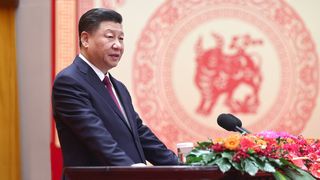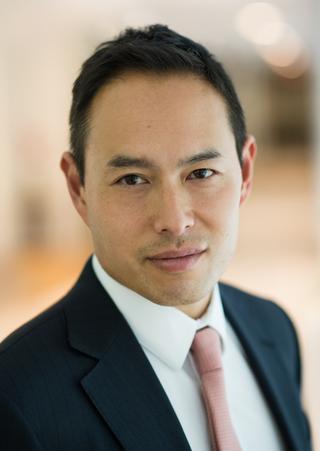If all great and rising powers seek a greater influence in the world commensurate with their power, what is so scary about China wanting a bigger say over the workings of international institutions?
Many point to the pressure Beijing placed on the World Health Organisation to unquestioningly promote its dishonest account in the critical early days of Covid-19 with catastrophic consequences. Others point to relentless Chinese attempts to change the global definition of human rights to deflect attention away from the abuses occurring in Xinjiang and other places.
During the past few days, the battleground has shifted to the seemingly apolitical UNESCO World Heritage Committee within which China exercises considerable influence. There are credible accusations that the sudden and unexpected draft recommendation of an “in-danger” listing for the Great Barrier Reef by the committee is a continuation of Chinese coercion and payback against Australia.
There are credible accusations that the sudden and unexpected draft recommendation of an “in-danger” listing for the Great Barrier Reef by the committee is a continuation of Chinese coercion and payback against Australia.
Beijing has, predictably, denied this. In any case, the fracas is a reminder that Chinese-dominated global institutions will work very differently from the US and European-dominated entities we are accustomed to.
The rise of Chinese military and economic power is obvious. But Beijing’s leaders and thinkers take non-material power seriously. The leadership has emphasised the link between setting the agenda, changing norms and standards and exercising control within and over even ostensibly non-political international institutions, with the objective of maximising what Chinese leaders and scholars refer to as comprehensive national power (CNP).
State scholars regularly debate CNP global rankings and, most of all, China’s place in the standings.
This brings one to the determined Chinese attempt to fill prominent and obscure global institutions with its diplomats and officials over the past decade. For example, the UN has 15 specialised agencies. These include prominent ones such as the International Monetary Fund, World Bank and WHO. The first two tend to be dominated by agendas set by Americans and Europeans, which is why China puts more emphasis on recently created institutions such as the Asian Infrastructure Investment Bank.
But China has made enormous progress when it comes to the other agencies. There is a Chinese director in four agencies overseeing food and agriculture, industrial development, civil aviation and telecommunications. There are Chinese deputies in nine other agencies overseeing areas such as agricultural development financing, international tourism, global meteorology and UNESCO. Recently, Beijing lost out to a candidate from Singapore for the leadership of the UN World Intellectual Property Organisation.
Some might see this as an unsurprising development and welcome it as evidence that China is rising within the existing global order. And why shouldn’t any great power seek to advance its interests and values within bodies that it legitimately engages with? The problem is the growing divergence between China’s interests, values and procedures against those of Australia’s and other countries explicitly supportive of the rules-based order.
Knowing what we do about the systematic state-sanctioned and supported nature of intellectual property theft perpetrated by China, electing Beijing’s choice as the next director of the WIPO would be like letting the proverbial fox loose in the hen house.
For example, would we be comfortable if the next director-general of WHO was a hand-picked official of Beijing’s, given it was China’s opaque institutions and practices that heavily contributed to the global pandemic? Knowing what we do about the systematic state-sanctioned and supported nature of intellectual property theft perpetrated by China, electing Beijing’s choice as the next director of the WIPO would be like letting the proverbial fox loose in the hen house.
The Chinese Director-General of the UN’s International Communications Union is proposing a new internet protocol idea for the world, which will be built by Chinese firms such as Huawei and entrench a system of top-down supervision and enforcement by the government. In other words, it would come closer to replicating the way the internet works inside China.
And if the Great Barrier Reef is formally ruled as being “in danger” by the World Heritage Committee next month, at Beijing’s behest, then it will widely be seen as an instance of China weaponising what ought to be an apolitical institution based on science and guided by expert — and not political — assessments.
To be clear, the worry is not the personal competency of Chinese officials, many of whom are eminently qualified. And it is not as if all officials from liberal democracies in these organisations are exemplary. In addition to the authoritarian value system that Chinese candidates owe allegiance to, the difference is that there are limits on the extent to which democratic leaders can politicise and weaponise technical and expert global bodies. Elected leaders could try but would encounter serious domestic and external resistance immediately.
In contrast, the leadership of the Chinese Communist Party is under no such constraints. Many Chinese actions in these bodies are neither subversive nor insincere. But Beijing is always driven by political purpose. It believes using any means to undermine or attack liberal values and institutions, or else using global bodies to punish upstarts such as Australia, is an important extension of Chinese comprehensive national power and legitimate statecraft.
By Beijing’s own power index, America is still far ahead when it comes to impact and influence in international institutions, even if the possible “in danger” listing of the Barrier Reef is an indication of rising Chinese clout.
The Trump administration was the first to truly take competition with China seriously but weakened its advantage by retreating from many international institutions that China was seeking to extend its authority within. It was only in the second half of Donald Trump’s presidency that specific plans were being considered to reverse that error.
In accepting the reality that comprehensive competition is necessary and occurring, one hopes the Biden administration will not make the same mistake.






